5 Activities That Will Help With Your Child's Gross Motor Skills
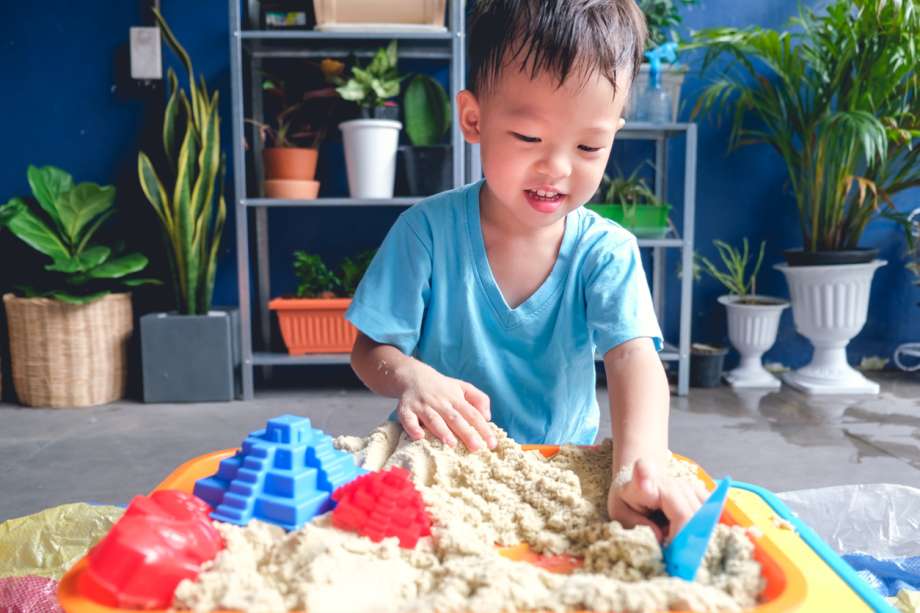
After tales of labor, birth, diapers and sleepless nights, parents often find themselves sharing and comparing stories of child development milestones.
My daughter just held her head up alone!
My son took his first steps this morning!
It’s perfectly normal to be proud of your children’s accomplishments and to actively encourage them, from their first movements as a baby to their toddler years, and into preschool.
Various motor skills, the act of moving your body to complete a task, represent important milestones. They involve the brain, nervous system and muscles working together and can be broken into 2 groups: gross and fine motor skills.
We’ll go over what they are, why they’re important and some fun, free, easy and safe activities you could consider to encourage the development of your child’s gross motor skills.
What are gross motor skills?
Gross motor skills are physical skills that exercise your large muscles to perform everyday body movements. They’re developed using the whole body and are a key part of child development.
Gross motor skills include hand-eye coordination and require motor planning - you have to think about what you are going to do and then execute it.
What counts as a gross motor skill? Anything involving whole body movements! From your baby trying to move their neck, to holding up their head, flailing their arms and kicking those little legs, all the way to more advanced movements that require further coordination, using the whole body. Think walking, running, kicking, jumping, sitting, throwing or lifting.
Why are gross motor skills important?
Gross motor skills are essential to your child’s development and wellbeing, they represent important developmental milestones that are required for everyday activities. A young child’s gross motor skills help to develop their bodies, making them more flexible, agile and aware of their own body.
Body awareness in a child is an important part of feeling physically comfortable and being able to interact happily with others. Social interaction requires basic gross motor skills and encourages a child’s development.
Gross motor skills are a stepping stone to developing fine motor skills.
What are fine motor skills?
Fine motor skills further build hand-eye coordination and motor planning. They involve more complex activities and movements that require precision and normally involve small muscles, for example moving fingers, hands or eyes. Think grabbing, chewing, drawing or writing.
Fine motor skills depend on gross motor skills and should develop alongside them, although they use different parts of the brain!
Child development milestones
Don’t worry about your friend’s baby that already rolls over or your sister’s kids who started walking before their first birthday.
Children develop motor skills at their own pace.
Every child is different and will develop differently. Mastering various motor skills requires more than just the muscles and body’s ability to perform them, it requires confidence. It is gradual and takes time. Every child develops at their own pace and the best thing parents can do is to gently encourage their children and create nurturing environments where they can safely and freely develop these skills.
The CDC provides a helpful list of development milestones covering motor skill development ranging from birth to 5 year olds. Some high level development milestones are:
- 2 months - Pushing up when on their tummy
- 4 months - Holding their head upright
- 6 months - Rolling over and sitting without support
- 12 months - Standing with support
- 2 years - Jumping with both feet
- 5 years - Hopping on one foot
If you are concerned about the progress of your little one’s physical development, then you should seek professional pediatric advice.
Activities to encourage gross motor skills
There are so many different and fun ways you can help your child develop their gross motor skills and build muscle tone through physical activity. We explored 5 fun activities that are easy, inexpensive and safe.
1 Reaching
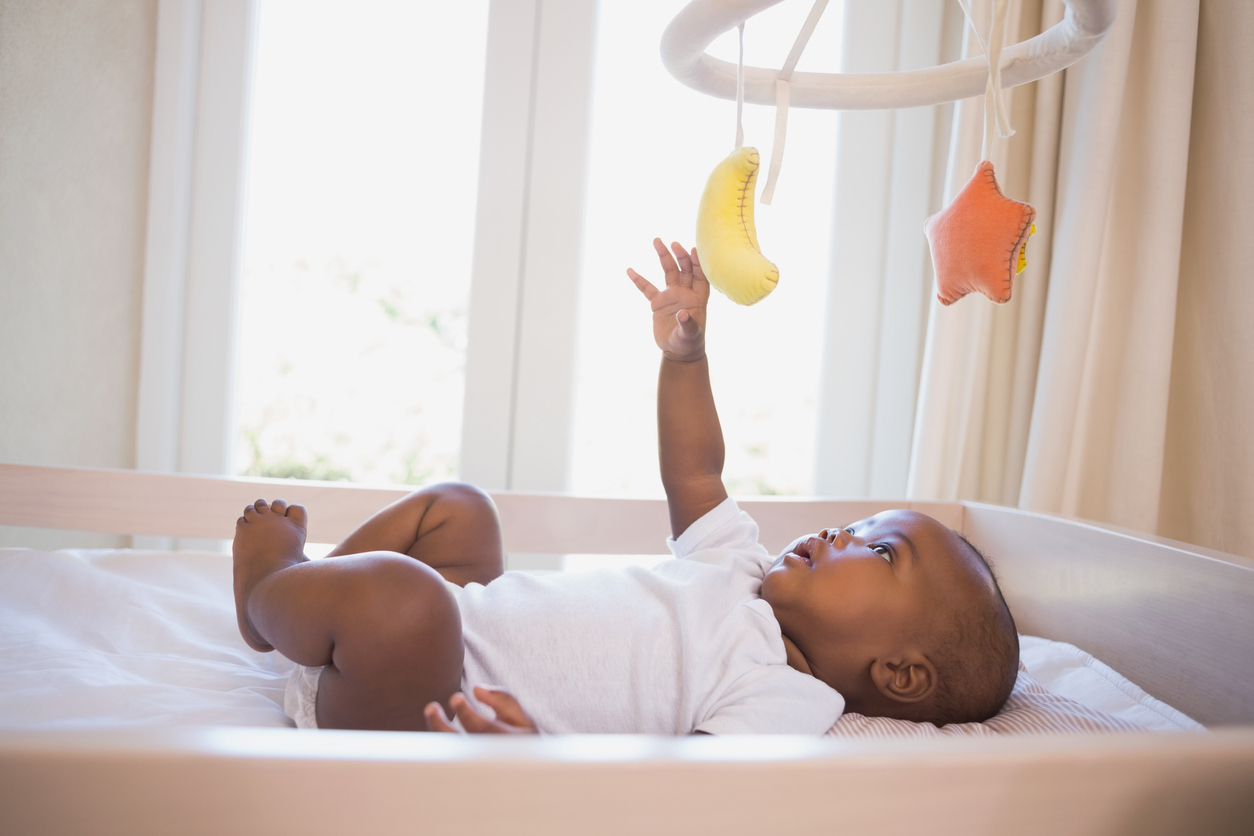
Before your child has learnt to walk, it’s helpful for their development to encourage them to reach towards something or someone. Either on their back or during ‘tummy time‘, encourage your child to reach out to your hand or an object that catches their attention. This will help develop their muscles in preparation for crawling and sitting.
2 Walking

Once your child can walk, typically between 9-18 months old, you will be hard pressed to stop them wandering around the house! When you can, taking your child to a local park or field to walk in nature, in less familiar terrain, is a great idea. Try and stick to even, level areas as walking up and down inclines can initially be challenging.
Make walking more fun by leading or following your child in a silly walk. A favorite in our house is the T-Rex walk (hands folded up to your chest & big, exaggerated steps, silly face optional)!
When your child is ready, upgrade to jogging and running, playing (and letting them beat you at) tag or small sprints and races.
3 Playing Outdoors
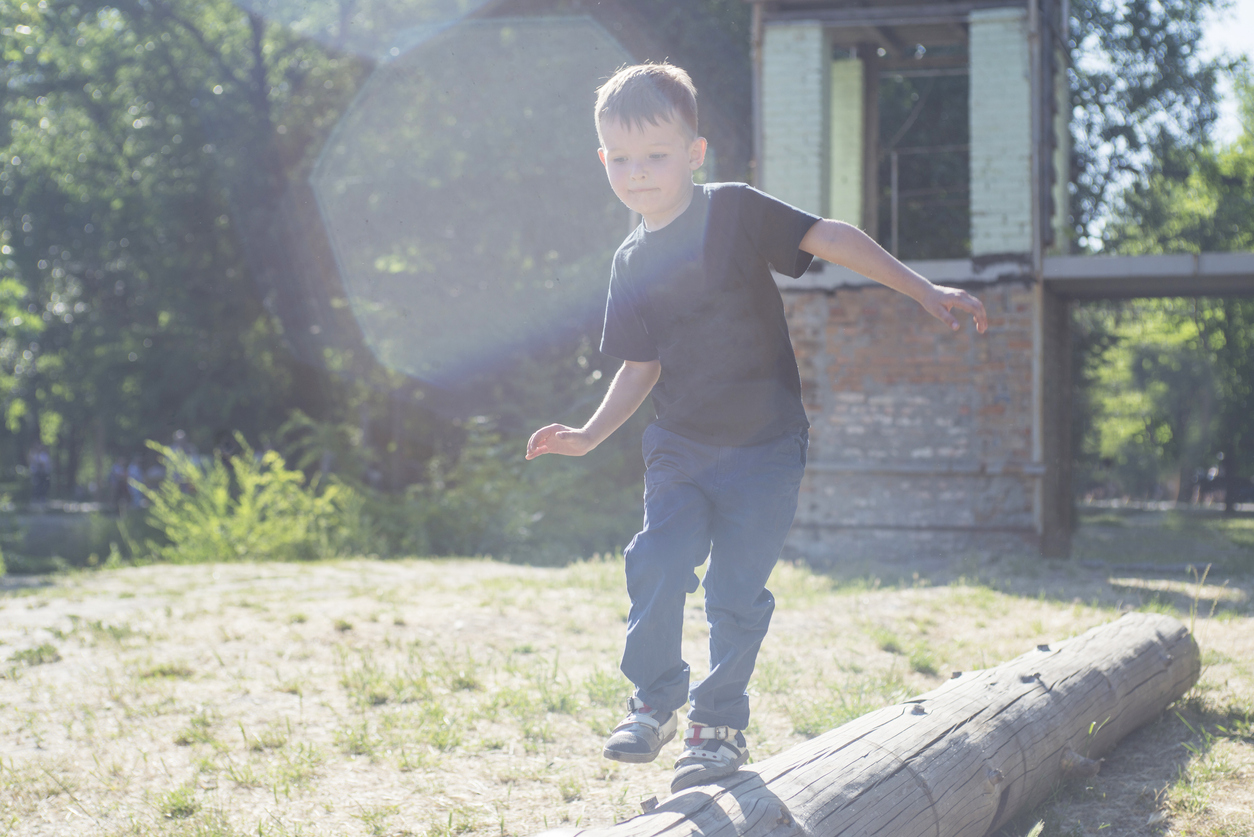
At some point you will need to take your child through the rite of passage that is the playground. This will push your child in more weird and wonderful ways than you can imagine as you scurry after them in an attempt to pre-empt the inevitable slip, bump or fall!
Playgrounds often have different sections for specific age groups. Ensure your child stays in the appropriate area: toddler (0-2 years old), pre-school (2-5 years old) or school-going (5-12 years old). For their safety, it is not recommended to bring children under 6 months old to the playground.
With the right mindset, anywhere can become a playground and everyday objects can transform into playground equipment. Once carefully inspected by a parent, a fallen tree branch or trunk can become a balance beam!
Try turning your living room into an outdoor playground by gathering these tree branches from outside and making a set of balance beams at different (and safe!) heights. Encouraging the growth of your child’s center of balance is important for all levels of physical development. Make sure to tell them to spread their arms out wide to assist with balancing, and be ready to catch them!
For older children, combine gross and fine motor skills by trying chalk drawing. Patio or sidewalk chalk allows children to draw their own racing track, obstacle course or hopscotch grid without worrying about mess.
4 Searching
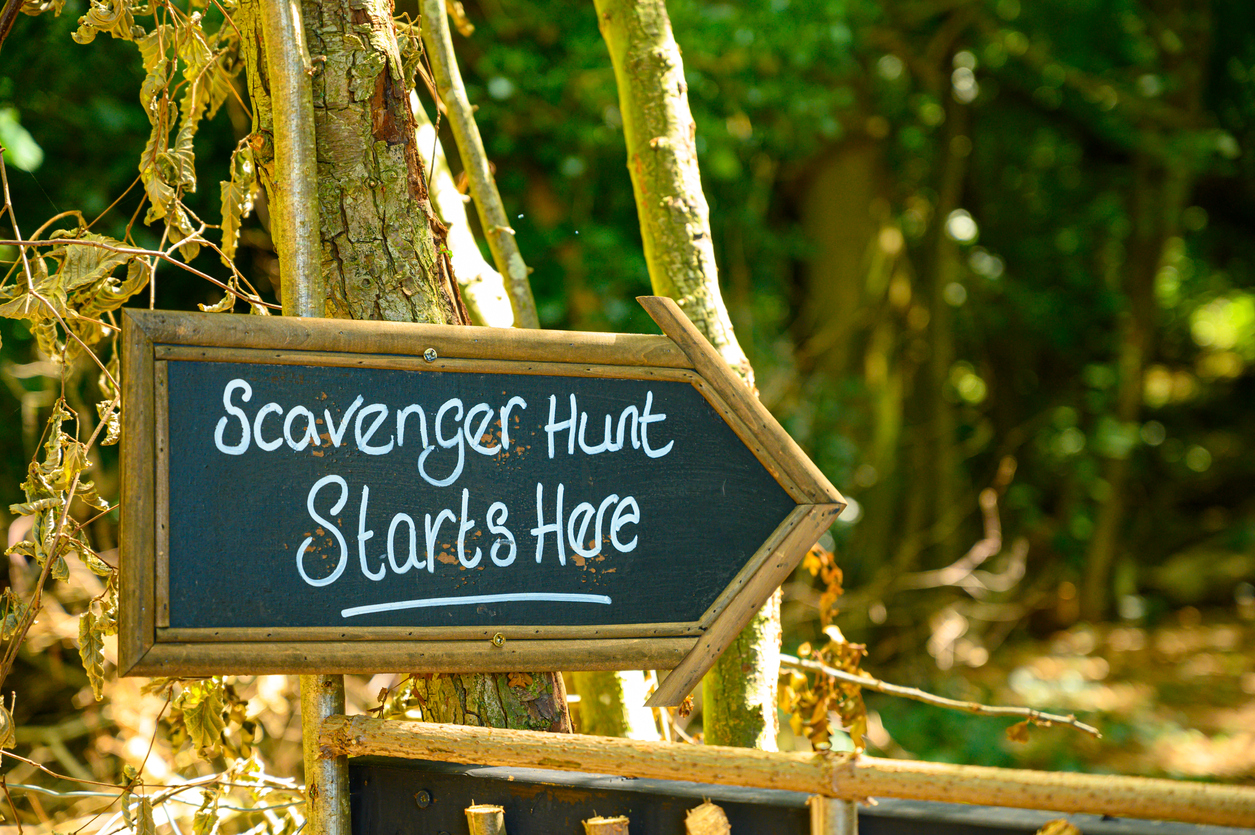
Children love to search and discover things and can often be found in interesting places inspecting things you would rather they had not found! As soon as they can crawl, typically at around 9 months old, you can use this to your advantage by setting up safe treasure or scavenger hunts - as basic or as sophisticated as you would like based on your child’s age and determination!
Be sure to supervise your children as they search around, they may be tempted to wander into difficult to access places or move heavy, fragile or dangerous objects in search of treasure.
5 Riding
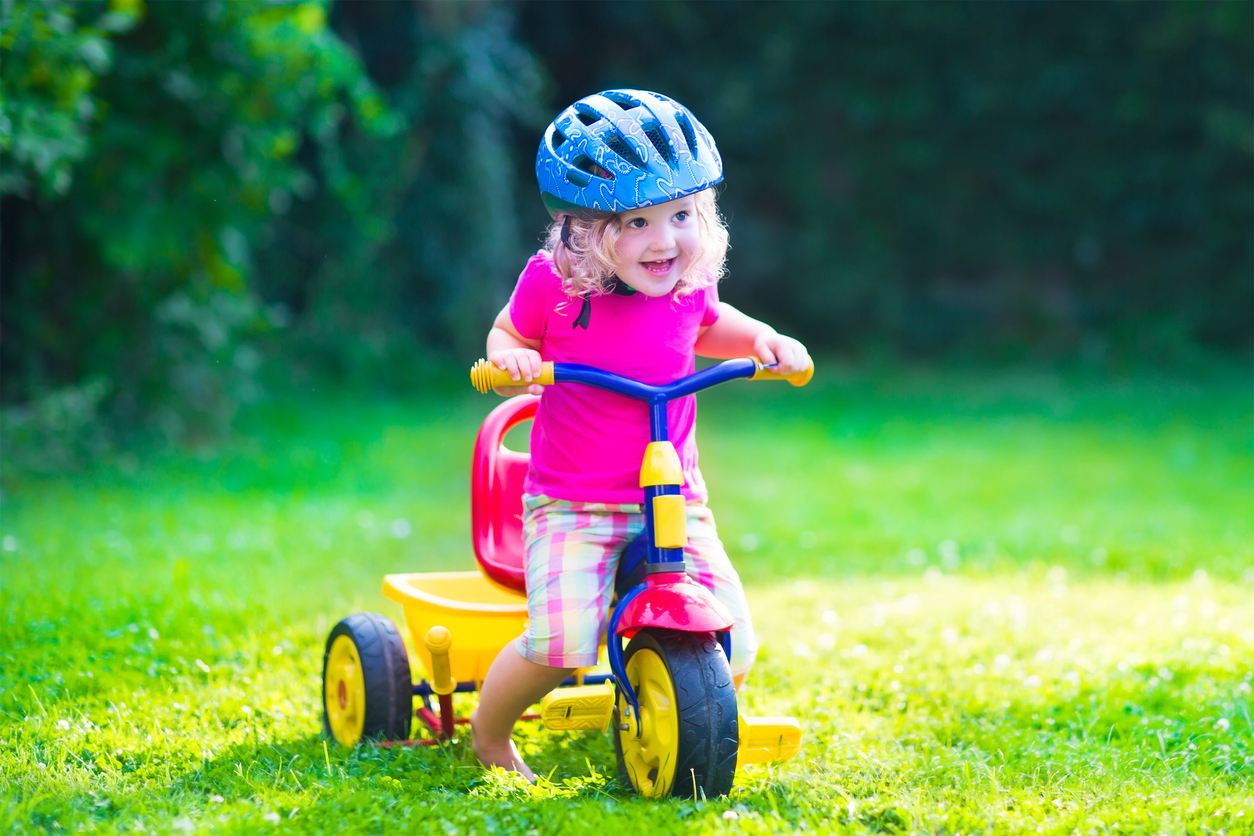
At some point your child will graduate from their own two feet to a set of 2, 3 or 4 wheels; depending on the ride of choice, this can be from as early as 18 months old. This is great news for their gross motor skills as they will be improving their balance, muscle strength, coordination and much more. Whether it is a tricycle, scooter, bike, roller skates or a skateboard, make sure your child has a helmet and be prepared to run after them!

